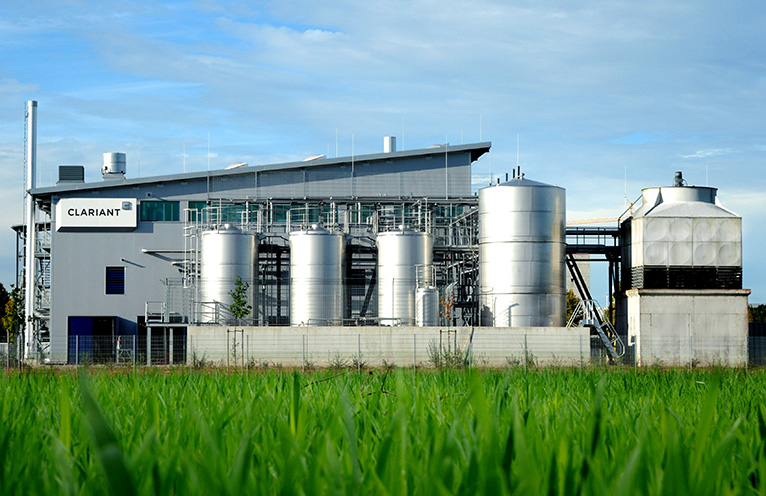
Clariant concludes miscanthus tests
Submitted by:
Andrew Warmington
Clariant has successfully completed tests on about 30 tonnes of miscanthus biomass, proving it to be a suitable feedstock for its Sunliquid process, in which biomass is converted into lignocellulosic sugars and ethanol for further use as intermediates for biobased chemicals. This followed tests at the company’s pre-commercial plant in Straubing, Germany (above).
The material was supplied from Croatia by oil and gas firm INA and sent to the facility in February. Also known as elephant grass or China reed, miscanthus is said to grow rapidly over 15-20 years as a permanent crop, have a low mineral content and offer a high yield, while not requiring pesticides or fertilisers on a yearly basis. Like Clariant, INA is a member of the 22-strong GRACE (Growing Advanced Industrial Crops on Marginal Lands for Biorefineries) project, which receives Horizon 2020 funding and is seeking to develop miscanthus as a sustainable feedstock resource for cultivation on marginal, contaminated and abandoned land. The consortium asked Clariant to carry out these tests.
Straubing has previously demonstrated cellulosic ethanol production on agricultural residues such as corn stover, sugarcane bagasse and straw, and wheat, barley and rice straw. In 2H 2018, Clariant broke ground on its first commercial cellulosic ethanol plant at Podari, Romania, which will use the Sunliquid process to make 50,000 tonnes/year of cellulosic ethanol.
